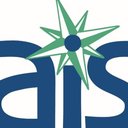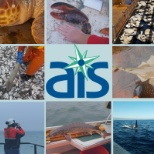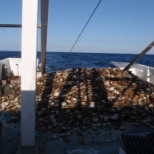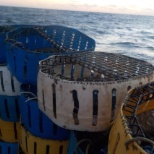A.I.S., Inc.

A.I.S., Inc. Headquarters Address
540 Hawthorn Street, North Dartmouth, MA, 02747 (view in map)
About A.I.S., Inc.
A.I.S., Inc. (AIS) is a national scientific services firm supporting maritime activities requiring certification of compliance with environmental regulations as well as collecting data for use by Federal, State, Municipal, and other government agencies along the US coastline.
AIS employs a multi-discipline team of technicians and scientists well qualified to design and implement sampling programs in the marine, estuarine and terrestrial environments. We specialize in managing large field sampling programs with a geographically dispersed work force. Services have been provided to federal and state agencies as well as private customers for over 25 years. Over the years we have offered support and innovative solutions to solve complex environmental challenges.
Our multi-discipline team includes marine biologists, vessel captains and crew, biologists, bio acousticians, ecologists, oceanographers, statisticians, and data analysts.
AIS staff are committed to high quality data and sample collection in order to advance science and technology in order to effectively manage our natural and living resources.
Interested in Fishery Sustainability, Management and Hands on Marine Biology Work? Become a Fisheries Observer!!AIS employs a multi-discipline team of technicians and scientists well qualified to design and implement sampling programs in the marine, estuarine and terrestrial environments. We specialize in managing large field sampling programs with a geographically dispersed work force. Services have been provided to federal and state agencies as well as private customers for over 25 years. Over the years we have offered support and innovative solutions to solve complex environmental challenges.
Our multi-discipline team includes marine biologists, vessel captains and crew, biologists, bio acousticians, ecologists, oceanographers, statisticians, and data analysts.
AIS staff are committed to high quality data and sample collection in order to advance science and technology in order to effectively manage our natural and living resources.
AIS has supported NOAA Fisheries and their regional observer programs since 1999. Our fisheries observers and at-sea monitors work from coastal communities throughout the United States. They deploy on commercial fishing vessels to safely collect and deliver high quality fisheries data and samples to NOAA Fisheries.
Observers and at-sea monitors are hired by AIS and trained and certified by NMFS. They deploy to assigned ports or temporary duty locations depending on the program’s need. AIS Coordinators supervise, support, and assign the observers and at-sea monitors to trips. The length of each trip and size of the vessels covered depend on the fishery and program.
During and following each trip the observer or at-sea monitor performs quality assurance checks. Depending on the program the data may be entered and uploaded electronically or submitted on paper logs.
Data submitted to NOAA Fisheries are logged in, and distributed to Debriefers or Data Editors at NOAA Fisheries. These teams review the trip logs and look for discrepancies, missing data and errors. Debriefers and editors may contact the observer or at-sea monitor to clear up any questions regarding the data. The accepted data is stored in a NOAA Fisheries database and made available to the NMFS scientists to be used for stock assessments and research.
Become a Protected Species Observer in our Environmental Monitoring Division!Observers and at-sea monitors are hired by AIS and trained and certified by NMFS. They deploy to assigned ports or temporary duty locations depending on the program’s need. AIS Coordinators supervise, support, and assign the observers and at-sea monitors to trips. The length of each trip and size of the vessels covered depend on the fishery and program.
During and following each trip the observer or at-sea monitor performs quality assurance checks. Depending on the program the data may be entered and uploaded electronically or submitted on paper logs.
Data submitted to NOAA Fisheries are logged in, and distributed to Debriefers or Data Editors at NOAA Fisheries. These teams review the trip logs and look for discrepancies, missing data and errors. Debriefers and editors may contact the observer or at-sea monitor to clear up any questions regarding the data. The accepted data is stored in a NOAA Fisheries database and made available to the NMFS scientists to be used for stock assessments and research.
AIS has over twenty-five years of experience monitoring protected species for population assessments as well as mitigation requirements during various levels of marine construction. AIS provides highly qualified scientists on projects include dredging, blasting, pile driving, cable lay, seismic survey operations, natural resource damage assessment and government funded research projects. We employ a large, full time staff of highly experienced National Marine Fisheries Service (NMFS) and Bureau of Ocean Energy Management (BOEM) certified Protected Species Observers (PSO) and Passive Acoustic Monitors (PAM). Our team comes equipped with all of the necessary equipment to perform their duties. Additionally, we offer night vision, thermal imaging and infrared technology to supplement monitoring in low visibility conditions. We continue to follow the technological advancements and software improvements being made in the PAM field. We are currently working with clients and partners to test emerging technologies that aim to improve our monitoring capability and increase the services we offer to our clients.
Our team of dedicated PSOs is directed by our Protected Species Program Manager, and a team of knowledgeable scientists that provide project planning, management and logistical support throughout any project. A.I.S. possesses the skills and experience necessary to design and implement a successful monitoring and mitigation plan in accordance with the mandates of various government agencies, specifically the Endangered Species Act (ESA) and the Marine Mammal Protection Act (MMPA).
Join our Professional, Technical and Scientific Support Services Department!Our team of dedicated PSOs is directed by our Protected Species Program Manager, and a team of knowledgeable scientists that provide project planning, management and logistical support throughout any project. A.I.S. possesses the skills and experience necessary to design and implement a successful monitoring and mitigation plan in accordance with the mandates of various government agencies, specifically the Endangered Species Act (ESA) and the Marine Mammal Protection Act (MMPA).
Our Professional, Technical and Scientific Support Services Department provides national and international fishery management support, marine observations, environmental data collection, ecosystem studies, associated data and information services, and various impact analyses for science-based conservation and management of fishing communities.
This department provides environmental intelligence for the four fisheries domain task areas: Studies, Analyses, and Reports; Applied Research, Engineering, Consulting, and Operations; Field Sampling, Data collection and Surveys; and Consulting, Program and Project Management. Together, our team is committed to providing NOAA with the experience, resources, and capability to successfully carry out its mission.
Northwest Atlantic Shark Cooperative Research FisheryThis department provides environmental intelligence for the four fisheries domain task areas: Studies, Analyses, and Reports; Applied Research, Engineering, Consulting, and Operations; Field Sampling, Data collection and Surveys; and Consulting, Program and Project Management. Together, our team is committed to providing NOAA with the experience, resources, and capability to successfully carry out its mission.
What information can shark scientists gather from species caught in cooperative research fisheries? What have they learned about the sandbar shark population? What are the benefits to fish consumers from these fisheries? This video also explains why prohibited shark species are fished in the U.S. and how information obtained is critical to NOAA Fisheries.
Credit: NOAA.GOV
Satellite Tags Help Manage Fisheries ClosuresCredit: NOAA.GOV
Dusky sharks live along the U.S. East Coast, and are sometimes caught unintentionally by fishermen. Follow scientists and fishermen as they attach satellite tags to learn more about this shark’s movements and better manage our nation’s fisheries.
Credit: NOAA.GOV
Credit: NOAA.GOV
Number of Employees in A.I.S., Inc.
201 to 500
A.I.S., Inc. Revenue
$5M to $25M (USD)
Industry




